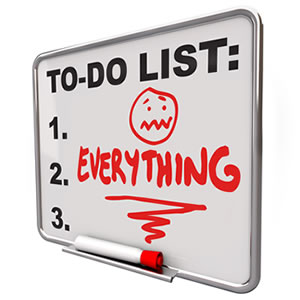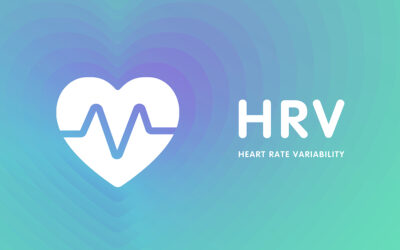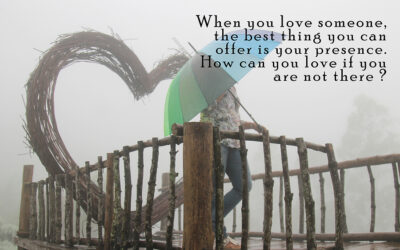Many of us judge the success of our day by how much we accomplished: “How many things did I check off my to do list today?” This is because our society places great value on busyness. Since we have these ingrained beliefs, you might feel guilty or lazy when you are idle. When this happens, the voice in the back of your head urges you to keep occupied–to keep doing.
It’s not a matter of what you are doing, but that you are doing–something. Anything. I often wonder if all that we are doing is necessary or adding value to our lives . . . Are these conscious choices or just routines of obligation? Are we sabotaging ourselves by staying overly busy? Does the house really need to be vacuumed daily? Or Facebook checked hourly?
This habit of constant doing may be the product of your early home environment. While young, you may have experienced your parents continually engaged in tasks, never seeming to rest. Or perhaps you observed the opposite in your upbringing and are rebelling against that, as I have. Whatever the case, constantly doing is not healthy.
Here’s an illustration. A few years ago, I was talking to my client, Sarah, about how she was always striving, a human constantly doing. For example, she was stressed out with work demands, and she wanted to lose weight. However, she couldn’t find enough time to exercise or eat well. She also suffered from depression, having recently lost her beloved husband. While in our session, we discussed the importance of just being. During our conversation, I encouraged her to stop her ceaseless activity. In other words, I prompted her to just be with herself and connect with who she was and what she really wanted.
Later, with tears in her eyes, Sarah related how our conversation was life-changing. She was unaware of her continuous drive and inability to tune into herself and be still. She committed first to become more aware of her thoughts and feelings; then she committed to take action in order to change those thoughts. She started small. Then she progressed to tackle the bigger challenges. Last I heard, she had moved and had gone back to school to embark on a new career in her 50s. You go, girl! It’s never too late!
Getting to really know yourself can be scary. Often we prefer to stay distracted through doing and avoid slowing down to just be. This was certainly my tendency until a few years ago, and I see it with several of my clients. When I ask them to do a simple exercise that requires lying on the floor for an extended period, they fail. Their overactive brains cannot relate stillness with a potential benefit, even when in a restorative posture.
 Last month I went on a cruise to Alaska. I have never had a desire to go on a cruise and only went because it was something my dad really desired. Prior to the cruise I was anxious about being stuck on a boat with nearly 3000 people for seven days. What was I going to do? When I would tell people of my upcoming adventure, some would frown, saying they could never do it. It would be too confining; there wouldn’t be enough activity; they’d get claustrophobic; it’d be cramped; and on and on. Clearly, cruises aren’t for everyone.
Last month I went on a cruise to Alaska. I have never had a desire to go on a cruise and only went because it was something my dad really desired. Prior to the cruise I was anxious about being stuck on a boat with nearly 3000 people for seven days. What was I going to do? When I would tell people of my upcoming adventure, some would frown, saying they could never do it. It would be too confining; there wouldn’t be enough activity; they’d get claustrophobic; it’d be cramped; and on and on. Clearly, cruises aren’t for everyone.
However, I had a great time on the cruise! Accompanied by my father, aunt and husband, it was a test of my ability to be. We spent many, many hours sitting: admiring the breathtaking scenery, eating and drinking, socializing, playing cards, listening to music or watching a show. It was a much different pace of life than I am accustomed to, and I had no problem adapting.
I don’t think this would have been the case before my injuries and going through my recovery process. Back in the early days of my athletics, I wouldn’t have been able to relax and be still for seven hours–certainly not for seven days. Rather, back then I would’ve been anxious about not training, over indulging, and, in general, what I would have perceived as wasting time. I would’ve assessed that I wasn’t doing anything productive. Being was not something I’d even considered.
Just as an asymmetrical physical structure is detrimental to your health, so is an unbalanced mind. A brain that cannot turn off, one that is always pushing on to the next thing, is continually invoking the stress response of the sympathetic nervous system. This can lead to various health conditions: insomnia, anxiety and panic disorders, ulcers, gastrointestinal upset, tension headaches, and many more.
My previous blog, Stress Prevents Self-Healing, discussed the importance of cycling between the stress response and the relaxation response of the parasympathetic nervous system. In numerous instances the practice of being as done in yoga, deep breathing or meditation moves you into a state of relaxation. This is certainly not time wasted but an essential element of wellness.
“The ability to be in the present moment is a major component of mental wellness.”
This quote is from Abraham Maslow who created the hierarchy of needs. A wikipedia image of his famous model is shown below. Being present would rank at the top of the pyramid in self-actualization.

So: how will you implement being into your life? You might start with an exercises described by pioneering mind-body researcher Herbet Benson, M.D. in his book The Relaxation Response, a phrase he first introduced to the medical community. You’ll find the exercise described in my blog: Overcome Stress by Invoking the Relaxation Response.
While doing this exercise, notice your responses on all levels: physical, mental, emotional and spiritual. It may take some time to quiet your internal critic–the one who desires perpetual action–and realize the benefits of being. You can do it! Let me know how it goes. Leave a comment below.



